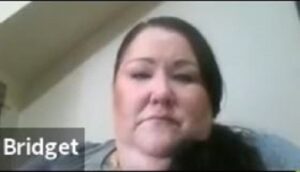Wiikwemkoong Prevention Services amplify knowledge and awareness through education at virtual human trafficking conference

By Rick Garrick
WIIKWEMKOONG UNCEDED TERRITORY — Wiikwemkoong Prevention Services transformed its annual human trafficking conference into the Chitwaa Jiijak Ahzhiit! Sacred Spirit That’s Lost – Human Trafficking Virtual Conference this February due to the coronavirus disease 2019 (COVID-19) pandemic.
Held in partnership with Ngwaagan Gamig and Naandwe Miikan, the conference featured morning and afternoon presentations on human trafficking and family violence by a range of speakers on Feb. 9, 11, 16, 18, 23 and 25. The presentations are posted online on the Wiikwemkoong Prevention Services Facebook page.
“There are lots of people that are interested in human trafficking and lots of questions,” says Barbara Peltier, prevention services manager at Wiikwemkoong Prevention Services. “With COVID-19, families are at home, some of them are in isolation, some of them have transportation issues or child care — they are unable to do any sessions so that is why we decided to do it on Zoom.”
Peltier says the first presentation featured Crystal Shawanda’s video, Pray Sister Pray.
“That was done here in Wiikwemkoong — it was all about Missing and Murdered Women,” Peltier says. “[Alison Recollet] starts with a smudge, which is really good — she talks about why we need to smudge and what’s the significance of smudging as well.”
Peltier says some of the presenters spoke about their lived experiences in human trafficking during their presentations, noting that Bridget Perrier was back again after delivering a workshop at last year’s Annual Human Trafficking Conference.
Perrier spoke about the Impacts of Women’s Health in Human Trafficking during her presentation on Feb. 11.
“We know that trauma affects our body, we know that it affects us in different ways,” Perrier says. “What we noticed with Sex Trade 101 was in exiting a lot of the girls had a lot of respiratory issues, bronchitis was constant.”
Perrier says dental problems were also a “huge” issue for many of the women.
“It impacted their self-esteem but it also caused pain,” Perrier says. “We saw a lot of girls needing full crowns, full dental, 23-year-olds needing to have full sets of dentures.”
Perrier says it is also difficult for some of the women to go for massages.
“That was very hard for some of us,” Perrier says. “I couldn’t have a massage for years. Even now I’m iffy, I’ll do it if I can see that the door is open and they have to know that I’ve experienced trauma.”
Perrier says many of the women have been “silenced.”
“We don’t like to talk about what happened to us out there to our little bodies,” Perrier says.
Perrier adds that she has seen four women with detached retinas during her work.
“We also had head injuries,” Perrier says. “A lot of our women have experienced head injuries. You got hit by your trafficker, your boyfriend beat you, a john beat you. Heads are really fragile.”
Other presentations were delivered on Recruitment and How to Prevent It by Jessica Desmond-Solomon on Feb. 9; Human Trafficking is Sexual Violence by Alison Recollet on Feb. 11; Emotional Impacts of Human Trafficking by Lisa Osawamick and Parents of Daughters by John Cassells on Feb. 16; and Remembering My Loved One by Michelle Mainville and Healing with Cedar Baths by Dorothy Wassegijig on Feb. 18.
Presentations were also scheduled on What can be learned from sisterhoods to help end trafficking in persons by Sheila Smith and Male Demand by John Cassells on Feb. 23; and The Law of Human Trafficking by Natasha Falle and The Signs of Human Trafficking and Grooming by Brenda Miller on Feb. 25.


